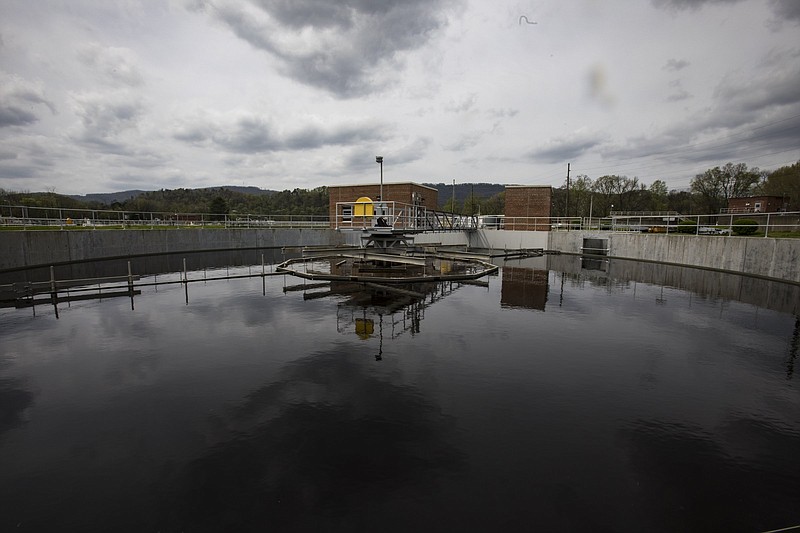The city of Chattanooga will continue testing local wastewater for the prevalence of COVID-19 after participating in a study in May that showed thousands more cases of the virus in the community than what was reported by local health officials.
Throughout May, the city's wastewater treatment center sent samples to the Massachusetts-based company Biobot. During the early part of the month, Biobot did not detect any traces of the coronavirus in wastewater despite there being several dozen cases in the community.
However, during its final collection on May 26, Biobot projected there to be 12,500 coronavirus infections in the county. At the time, the Hamilton County Health Department had reported 717 infections.
News of the study became public in a recent NBC News article that called Chattanooga a hotspot for the virus. Chattanooga was one of around 350 cities that participated in the initial study, said Maura Sullivan, chief operating officer for the city. The results from the May sampling were first given to the city in June.
Chattanooga will work with Biobot into 2021 to continue testing wastewater through a contract for around $23,900, Sullivan said.
Samples will be sent every two weeks and city leaders expect a faster turnaround time on those results, likely between three and seven days, said Jeff Rose, director of wastewater systems.
Rose said the measurements are calculated to reduce the risk of false positives.
"The numbers we get are fairly conservative when it comes to prevalence rate," he said.
Dr. William Schaffner, an infectious disease specialist at Vanderbilt University Medical Center, said wastewater studies provide another tool for understanding the size of local outbreaks. The data released about Chattanooga affirms what public health officials across the country have said since the early days of the pandemic, he said.
"It should remind everyone, the average person as well as all the public health professionals, that we really have more infections than we think," Schaffner said.
However, every study has limitations. Just as COVID-19 case counts can only measure those who choose to be tested, the results of the wastewater study could be skewed by people who are releasing a lot of virus fragments into the wastewater or by people who have recovered and are not at risk of spreading it.
"People can, even after they recover, have a positive nasal swab test, but that's just fragments of the virus. The virus is not active," Schaffner said. "What could be measured at the central wastewater treatment plant could be a measure of current, active infections as well as people who are still putting into the wastewater virus fragments from their illness two weeks ago."
Due to the cost, the city does not plan to do targeted wastewater sampling, such as gathering samples from specific communities to measure hyperlocal case counts, Rose said.
Data from the ongoing studies will be shared with the Hamilton County Health Department and the county's COVID-19 task force, Sullivan said.
As the county prepares to institute a mandatory mask policy on Friday, the current number of new infections, hospitalizations and people in the intensive care unit mirrors the worst parts of the outbreak in June, which was the deadliest month so far for Hamilton County.
Contact Wyatt Massey at wmassey@timesfreepress.com or 423-757-6249. Follow him on Twitter @news4mass.
